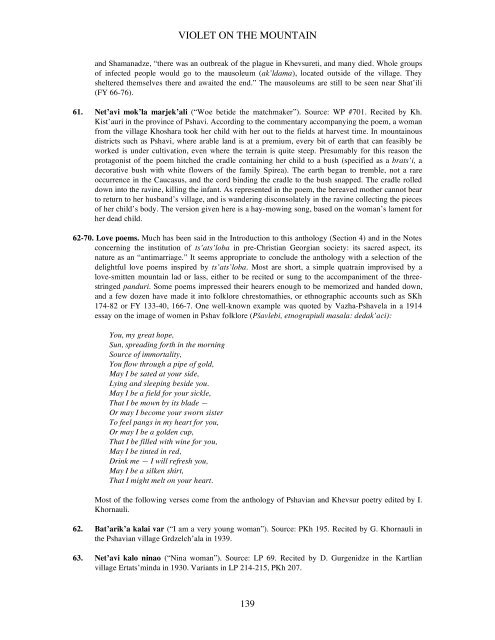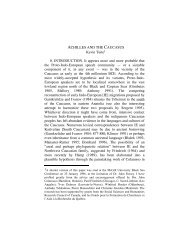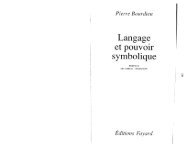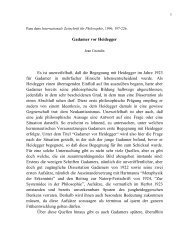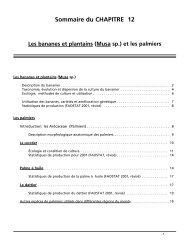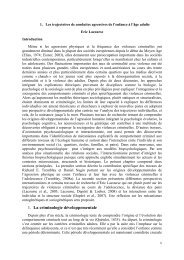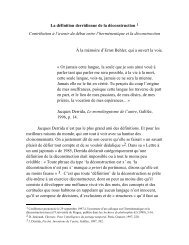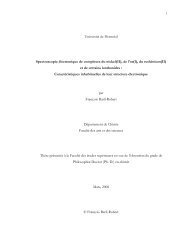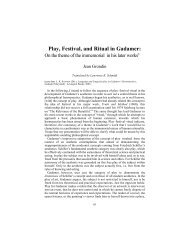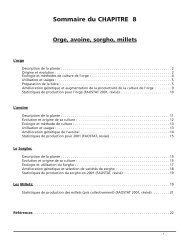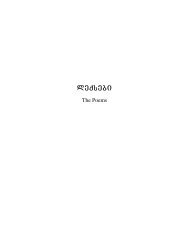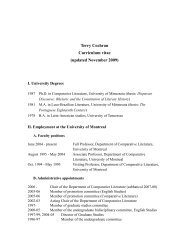You also want an ePaper? Increase the reach of your titles
YUMPU automatically turns print PDFs into web optimized ePapers that Google loves.
VIOLET ON THE MOUNTAIN<br />
and Shamanadze, “there was an outbreak of the plague in Khevsureti, and many died. Whole groups<br />
of infected people would go to the mausoleum (ak’ldama), located outside of the village. They<br />
sheltered themselves there and awaited the end.” The mausoleums are still to be seen near Shat’ili<br />
(FY 66-76).<br />
61. Net’avi mok’la marjek’ali (“Woe betide the matchmaker”). Source: WP #701. Recited by Kh.<br />
Kist’auri in the province of Pshavi. According to the commentary accompanying the poem, a woman<br />
from the village Khoshara took her child with her out to the fields at harvest time. In mountainous<br />
districts such as Pshavi, where arable land is at a premium, every bit of earth that can feasibly be<br />
worked is under cultivation, even where the terrain is quite steep. Presumably for this reason the<br />
protagonist of the poem hitched the cradle containing her child to a bush (specified as a brats’i, a<br />
decorative bush with white flowers of the family Spirea). The earth began to tremble, not a rare<br />
occurrence in the Caucasus, and the cord binding the cradle to the bush snapped. The cradle rolled<br />
down into the ravine, killing the infant. As represented in the poem, the bereaved mother cannot bear<br />
to return to her husband’s village, and is wandering disconsolately in the ravine collecting the pieces<br />
of her child’s body. The version given here is a hay-mowing song, based on the woman’s lament for<br />
her dead child.<br />
62-70. Love poems. Much has been said in the Introduction to this anthology (Section 4) and in the Notes<br />
concerning the institution of ts’ats’loba in pre-Christian Georgian society: its sacred aspect, its<br />
nature as an “antimarriage.” It seems appropriate to conclude the anthology with a selection of the<br />
delightful love poems inspired by ts’ats’loba. Most are short, a simple quatrain improvised by a<br />
love-smitten mountain lad or lass, either to be recited or sung to the accompaniment of the threestringed<br />
panduri. Some poems impressed their hearers enough to be memorized and handed down,<br />
and a few dozen have made it into folklore chrestomathies, or ethnographic accounts such as SKh<br />
174-82 or FY 133-40, 166-7. One well-known example was quoted by Vazha-Pshavela in a 1914<br />
essay on the image of women in Pshav folklore (P£avlebi, etnograpiuli masala: dedak’aci):<br />
You, my great hope,<br />
Sun, spreading forth in the morning<br />
Source of immortality,<br />
You flow through a pipe of gold,<br />
May I be sated at your side,<br />
Lying and sleeping beside you.<br />
May I be a field for your sickle,<br />
That I be mown by its blade —<br />
Or may I become your sworn sister<br />
To feel pangs in my heart for you,<br />
Or may I be a golden cup,<br />
That I be filled with wine for you,<br />
May I be tinted in red,<br />
Drink me — I will refresh you,<br />
May I be a silken shirt,<br />
That I might melt on your heart.<br />
Most of the following verses come from the anthology of Pshavian and Khevsur poetry edited by I.<br />
Khornauli.<br />
62. Bat’arik’a kalai var (“I am a very young woman”). Source: PKh 195. Recited by G. Khornauli in<br />
the Pshavian village Grdzelch’ala in 1939.<br />
63. Net’avi kalo ninao (“Nina woman”). Source: LP 69. Recited by D. Gurgenidze in the Kartlian<br />
village Ertats’minda in 1930. Variants in LP 214-215, PKh 207.<br />
139


